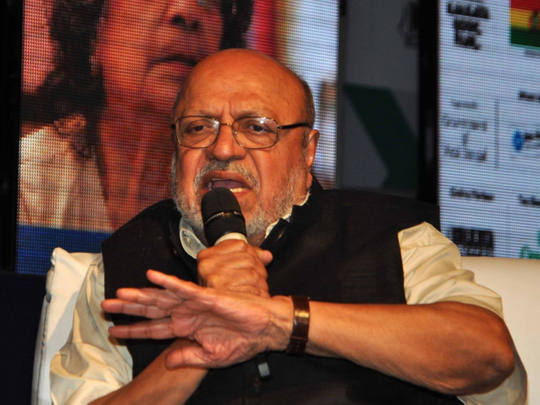
Veteran director Shyam Benegal believes Indian cinema will always be known as “before and after Satyajit Ray” and says no other filmmaker has ever been able to emulate the quality of filmmaking that the Pather Panchali director possessed.
Benegal addressed a packed auditorium at the launch of the Satyajit Ray Film Retrospective in Israel, on Sunday.
The national award-winning director said that when Ray entered Indian film industry “nobody knew what had hit them”. Ray changed filmmaking, particularly “relating to subjects and the manner in which he handled them,” said Benegal.
“Satyajit Ray was, of course, the most important Indian filmmaker. I don’t think there has been another of that quality since,” Benegal said.
“But Ray also occupies historically a very interesting position in Indian cinema because when you talk about Indian films, you always say this is something before Ray and this is something after Ray.”
Seven of Ray’s classics — the Apu trilogy (Pather Panchali, Aparajito and Apur Sansar), Jalsagar, Ganashatru, Ghare Baire and Aguntuk will be screened in cinemas in Tel Aviv, Jerusalem and Haifa for two weeks.
Describing the release of Ray’s Pather Panchali in 1955 as a watershed in the evolution of Indian cinema, Benegal said that it was a landmark moment that turned everything upside down.
Benegal also compared mainstream Indian cinema to biryani, saying, “it has a bit of everything” and said that such films are full of fantasy but may not necessarily reflect reality.
“When you make a film of that nature, one of the things is that it is not necessarily connected to life, to anybody’s life or to life as we experience it. There is a tendency of such films to be fantastic. To have great amount of fantasy in it.
“Therefore one of the things that happened in the evolution of Indian cinema is that until the beginning of 1950s it was fine but suddenly there were murmurings in different parts of India that probably films of the nature that we were making could not possibly be continued for a long time. Among those who felt that way was Satyaji Ray,” Benegal said.
The Zubeidaa director added that people have not stopped making mainstream films today but a variety in movies is encouraged now.











